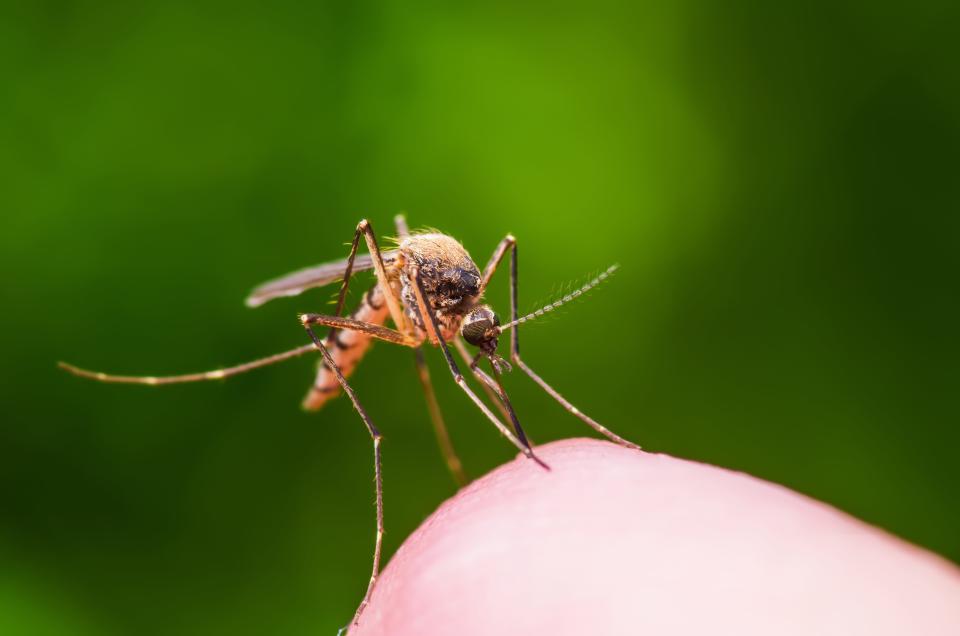CDC warns of increased dengue infections, virus spread through mosquito bites
The Centers for Disease Control and Prevention has issued a health advisory warning of an increase in dengue virus infections this year.
Dengue is a viral disease caused by any of the four dengue viruses, and it is spread to people through mosquito bites. Up to 400 million people are infected each year.
From Jan. 1 to June 24 this year, countries in the Americas have reported more than 9.7 million dengue cases, the CDC said, twice as many as the 4.6 million cases reported in 2023.
With 1,489 cases reported, Puerto Rico has declared a health emergency, and the CDC says a higher-than-expected number of dengue cases have been identified among U.S. travelers this year as of June 24, or 745 cases.

Globally, dengue cases are also increasing, and the CDC recommends that health care providers, public health authorities and the public have "increased suspicion" of dengue among people with a fever who have been in areas of frequent or continuous dengue transmission within 14 days before the illness onset.
Additionally, the CDC says, dengue cases should be reported quickly, and mosquito bite prevention measures should be promoted for people living in or visiting areas with frequent or continuous dengue transmission.
Here's what to know about dengue.
What is dengue?
Dengue is caused by four distinct but closely related dengue viruses: dengue virus 1, 2, 3 and 4. It is spread to people through the bite of an infected mosquito. Transmission is common in tropical and subtropical areas of the world.
Up to 400 million people are infected with a dengue virus every year, the CDC says.
Where are cases of dengue?
Dengue is one of the most common arboviral, or disease spread by insects, globally.
Local transmission of dengue in the U.S. has been limited, with sporadic cases or small outbreaks in Florida, Hawaii and Texas, although transmission has also been reported in Arizona and California over the past two years.
Six U.S. territories and freely associated states are classified as areas with frequent or continuous dengue transmission, according to the CDC: Puerto Rico, American Samoa, the U.S. Virgin Islands, the Federated States of Micronesia, the Republic of Marshall Islands and the Republic of Palau.
What are the symptoms of dengue?
About 1 in 4 people infected with dengue will get sick, according to the CDC, and for people who do get sick, symptoms can range from mild to severe.
Symptoms include:
Fever (the most common symptom)
Aches and pains (eye pain, typically behind the eyes; muscle, joint or bone pain)
Nausea, vomiting
Rash
Any warning sign
Symptoms usually last two to seven days, and most people recover within about a week.
Is dengue deadly?
Most people who are infected with dengue have no symptoms or experience mild disease, the CDC says, and a smaller number of people will have severe disease that requires immediate medical attention.
Dengue can rarely have serious effects on the liver, heart, central nervous system, kidneys, eyes, muscles or bone marrow, and severe dengue can lead to death.
How to treat and prevent dengue
There is no specific medicine to treat dengue, but the CDC recommends a dengue vaccine for U.S. territories and freely associated states.
Because dengue is spread through mosquito bites, you can help protect yourself by:
Using insect repellent.
Wearing loose-fitting, long-sleeved shirts and pants.
Controlling mosquitoes in and around your home.
This article originally appeared on USA TODAY: Dengue fever cases rising, CDC warns: What is it, what are symptoms
